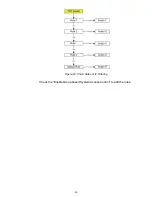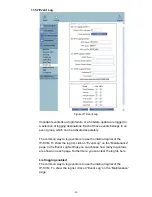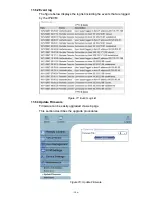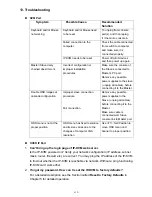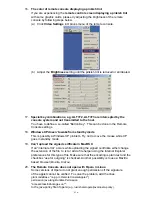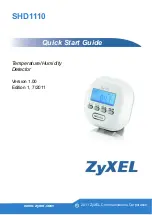
-102-
In order to configure the LDAP access, you can set the following options:
User LDAP Server
Here you enter the name or IP address of the LDAP server containing all the user entries.
If you choose a name instead of an IP address you need to configure a DNS server in
the network settings. E.g.: 192.168.1.250
Base DN of User LDAP Server
Here you specify the distinguished name (DN) where the directory tree starts in the user
LDAP server. E.g.: dc=test,dc=domain,dc=com
Type of external LDAP Server
With this option you set the type of the external LDAP server. This is necessary
since some server types require special handling. Additionally, the default values
for the LDAP scheme are set appropriately. You can choose between a Generic
LDAP Server, a Novell Directory Service and a Microsoft Active Directory. If you
have neither a Novell Directory Service nor a Microsoft Active Directory then
choose a Generic LDAP Server and edit the LDAP scheme used (see below).
Name of login-name attribute
This is the name of the attribute containing the unique login name of a user. To
use the default leave this field empty. The default depends on the selected LDAP
server type.
Name of user-entry object class
This is the object class that identifies a user in the LDAP directory. To use the default
leave this field empty. The default depends on the selected LDAP server type.
User search subfilter
Here you can refine the search for users that should be known to the IP-KVM.
Active Directory Domain
This option represents the active directory domain that is configured in the
Microsoft Active Directory server. This option is only valid if you have chosen
a Microsoft Active Directory as the LDAP server type. E.g.: test.domain.com
Using the RADIUS Server
RADIUS (Remote Authentication Dial In User Service) is a protocol specified
by the Internet Engineering Task Force (IETF) working group. There are two
specifications that make up the RADIUS protocol suite: Authentication and
Accounting. These specifications aim to centralize authentication, configuration
and accounting for dial-in services to an independent server. The RADIUS
protocol exists in several implementations such as freeRADIUS, openRADIUS
or RADIUS on UNIX systems. The RADIUS protocol itself is well specified and
tested. We can give a recommendation for all products listed above, especially
for the freeRADIUS implementation.
Note:
Currently, we do not support challenge/response. An Access Challenge
response is seen and evaluated as an Access Reject.



